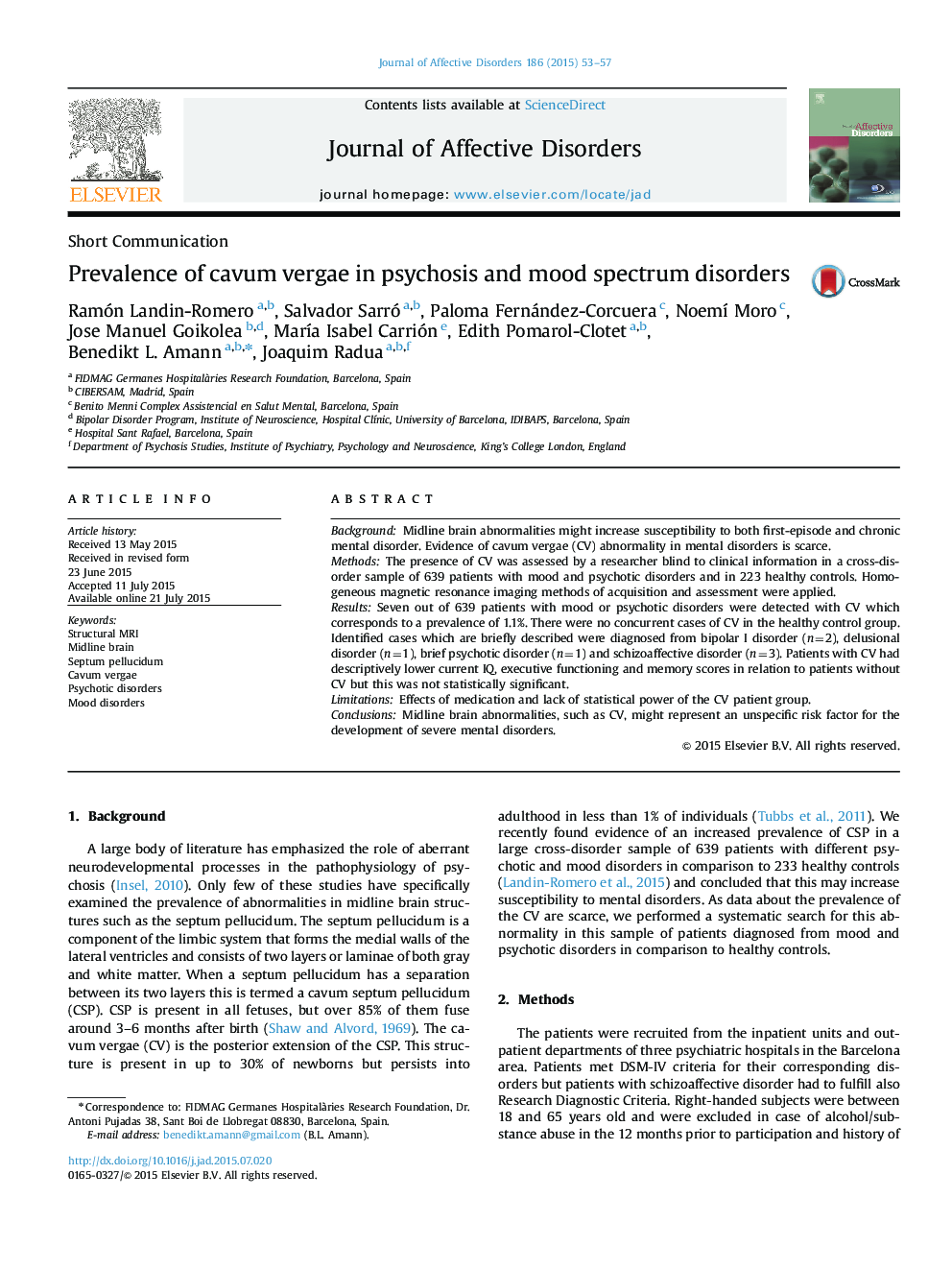| Article ID | Journal | Published Year | Pages | File Type |
|---|---|---|---|---|
| 6231120 | Journal of Affective Disorders | 2015 | 5 Pages |
â¢Cavum vergae (CV) might increase susceptibility to severe mental disorder.â¢The presence of CV was assessed in 639 patients and in 223 healthy controls.â¢Seven out of 639 patients with mental disorders were detected with CV.â¢CV might represent a risk factor for the development of severe mental disorders.
BackgroundMidline brain abnormalities might increase susceptibility to both first-episode and chronic mental disorder. Evidence of cavum vergae (CV) abnormality in mental disorders is scarce.MethodsThe presence of CV was assessed by a researcher blind to clinical information in a cross-disorder sample of 639 patients with mood and psychotic disorders and in 223 healthy controls. Homogeneous magnetic resonance imaging methods of acquisition and assessment were applied.ResultsSeven out of 639 patients with mood or psychotic disorders were detected with CV which corresponds to a prevalence of 1.1%. There were no concurrent cases of CV in the healthy control group. Identified cases which are briefly described were diagnosed from bipolar I disorder (n=2), delusional disorder (n=1), brief psychotic disorder (n=1) and schizoaffective disorder (n=3). Patients with CV had descriptively lower current IQ, executive functioning and memory scores in relation to patients without CV but this was not statistically significant.LimitationsEffects of medication and lack of statistical power of the CV patient group.ConclusionsMidline brain abnormalities, such as CV, might represent an unspecific risk factor for the development of severe mental disorders.
